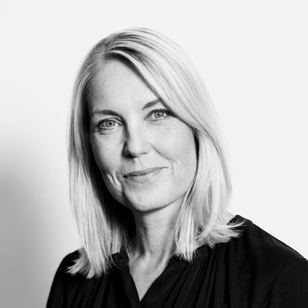A few years back I started a debate in the Danish Business Newspaper, Børsen. I had just read an article about how, for the 5th year in a row, a record was set in the turnover of directors of the 1000 largest companies in Denmark.
My input was to show concern, because how does this quick and constant change in directors affect the companies?
My concern only grew, when I read the updated numbers last week; out of the 2500 largest, listed companies worldwide, 17% had a change of CEO during 2015 – making it the highest amount in 16 years!
The replacement CEOs were often hired externally, particularly in companies exposed to disruption. According to an analysis from PWC, hiring externally was especially done in companies where digitisation and new business models were threatening the business.
First of all, I believe we have a problem in the current way we are using, and thereby understanding, the term “disruption”, but let’s save that discussion for another time.
What concerns me is the combination of external hires, focus on disruption, and the high turnover of CEOs. It tells me that we are often hiring CEOs who do not know their companies, because they have not been “raised” in them; their main task is to “reinvent” the company, and they have to deliver results fast. My fear is that the Dna – the inner strengths, the purpose – what the companies were originally built on, and what made them grow and become great will be lost in this process.
With all due respect to how digitisation and new business models are changing businesses and conditions, it is still a how – it is the way you do business. But what is it you want to achieve? What is the higher purpose of the company? Why are you here? The answer to those questions can never be ‘digitisation’, ‘technology’ or ‘new market conditions’. While I fully understand that CEOs need to answer how, I strongly advocate that they are able to answer why first.
Therefore, I call new CEOs and boards worldwide to remember that all companies are, per definition, fathered uniquely, with a unique Dna and purpose upon which their business and goals were built. I believe it is a CEO’s responsibility to treasure and respect this heritage. No one has expressed this better than renowned Swiss watchmaker, Patek Phillipe:
”You never actually own a Patek Phillipe, you are merely looking out for it for the next generation.”
Thus I also believe that it is from within their heritage that companies will be able to understand how to define their future role – thereby understanding how to do business in a new digital reality. I fear that if we focus too much on how; hire externally and replace fast, we run the risk of losing the souls of some of our largest companies. And then, what is left for them? A constant battle on differentiation, without anything to make them differ.
Contact
Related insights
Identity first: The key to lasting strategic impact
Many of us have heard the numbers… 60-70% of all strategies fail. And if we go all the way back…
Company Identity as an enabler for business transformation
diconium was founded in 1995 and has grown into one of the leading players in building e-commerce solutions. In 2020,…
IDna Group Supports SH Group’s Organisational Transformation, Paving the Way for Change of Ownership
IDna Group has supported the organisational transformation of SH Group, a global company offering smart handling technology solutions to the…
Aligning the organisation for transformation and growth
After a busy time with exciting projects, we had the opportunity to reflect on one of our customers’ pervasive challenges.…
Related insights
-

Identity first: The key to lasting strategic impact
Many of us have heard the numbers… 60-70% of all strategies fail. And if we go all the way back to Harvard Business School Professor Robert Kaplan’s book, The Balanced Scorecard: Translating Strategy into Action, up to 90% of organisations fail to execute their strategies successfully. Regardless of the actual number, it is terrifying that so…
-

Company Identity as an enabler for business transformation
diconium was founded in 1995 and has grown into one of the leading players in building e-commerce solutions. In 2020, diconium became part of the VW Group and extended its offering, size, and global footprint, contributing to the digitalisation of the VW Group and the development of software in VW’s electric cars. After growing very…
-

IDna Group Supports SH Group’s Organisational Transformation, Paving the Way for Change of Ownership
IDna Group has supported the organisational transformation of SH Group, a global company offering smart handling technology solutions to the maritime and defence industry with HQ in Svendborg, Denmark. In close collaboration with the management of SH Group, the previous majority owner BWB Partners and the financial advisor Alantra, IDna Group supported SH Group in their change initiatives…
-

Aligning the organisation for transformation and growth
After a busy time with exciting projects, we had the opportunity to reflect on one of our customers’ pervasive challenges. Regardless of the initial cause of the project, almost all of our recent projects have one thing in common: the need to create “one company.” The desire to create a common point of departure…

